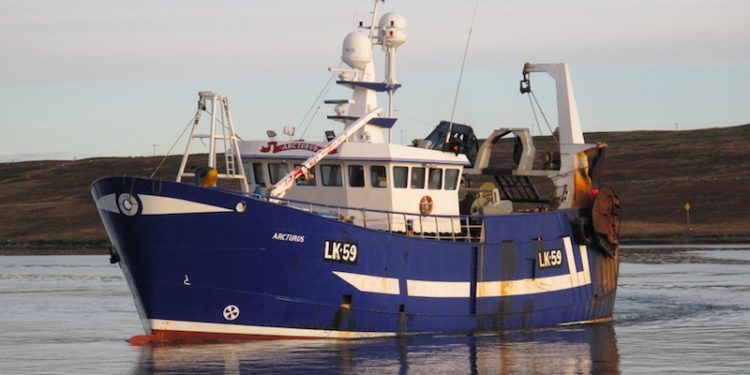The two main UK fishing industry federations have underlined their joint position, working together to secure the best possible deal from the EU withdrawal negotiations.
‘As the Prime Minister has made crystal clear, at the conclusion of the transition period in December 2020, the UK will have the legal status, under international law, of an independent coastal state; with rights and responsibilities to manage the fisheries under its jurisdiction within the UK exclusive economic zone,’ state NFFO chief executive Barrie Deas and SFF chief executive Bertie Armstrong.
‘Regarding responsibilities, the UK will continue to manage its fisheries responsibly and sustainably, including joint management of stocks that are shared with other countries. But it is equally important that that the UK’s ability to operate as a legally-constituted independent coastal state is not compromised by any concessions agreed as part of the Brexit deal.’
The two federations dismiss as absurd the EU negotiators’ determination to link a free trade deal to access to fishing in UK waters and quota shares, commenting that this is an attempt to maintain the current unbalanced arrangement
‘Acceptance of such an unprecedented and unprincipled link by UK negotiators would be regarded by the entire UK fishing industry as a gross betrayal and have grave electoral consequences. Future decisions on total allowable catches, quota shares and access arrangements should be made in the normal way in which coastal states work together – i.e. via annual bilateral fisheries agreements,’ they state.
The federations emphasise that supply chains within the UK and the EU are best served by free, unimpeded trade.
‘The whole UK fishing industry and its many friends among the general public and in the world of politics, will measure the Government’s negotiating achievements against three criteria,’ the NFFO and SFF comment, listing these as actual as well as legal authority over all fishing activities within the UK EEZ, fisheries management decisions on shared stocks being made through annual bilateral agreements, and free and frictionless trade in fish and fisheries products.









